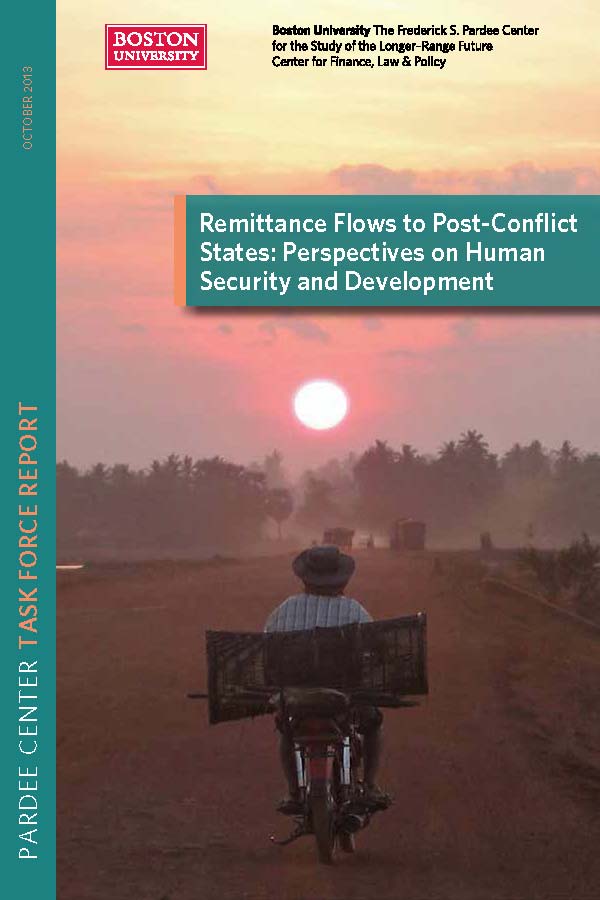Pardee Task Force on Remittances Presents Findings at World Bank
 The conveners and lead researcher for the Boston University Task Force on Remittance Flows to Post-Conflict States presented the findings of a recent Pardee Center Task Force Report during a special seminar at the World Bank headquarters in Washington, D.C. on January 8.
The conveners and lead researcher for the Boston University Task Force on Remittance Flows to Post-Conflict States presented the findings of a recent Pardee Center Task Force Report during a special seminar at the World Bank headquarters in Washington, D.C. on January 8.
Task Force co-conveners John R. Harris and Donald F. Terry along with lead researcher Daivi Rodima-Taylor presented highlights from the report, titled “Remittance Flows to Post-Conflict States: Perspective on Human Security and Development,” which is one of the first efforts to systematically analyze post-conflict remittance systems, and whether and how such remittances can play a role in development in conflict-affected states. The topics discussed at the seminar included the current methods and high costs of transferring remittances (money or other goods sent by migrant workers to relatives in their home country), and the need to connect formal and informal remittance delivery systems using innovative technologies and local social networks. The report found that remittance flows to post-conflict countries are often delivered through informal systems with very high transaction fees, and that the amount of money and goods that is channeled through these informal systems is severely underestimated.
The January 8 session, part of a seminar series on “Africa Fiance and Private Sector Development Knowledge-Sharing and Learning”, was attended by approximately 60 World Bank staff members and guests, and included live audio participation from sites in London, Brussels and Addis Ababa.
A Pardee House Seminar on February 4 will feature Harris, Terry, Rodima-Taylor, and Nikos Passas of Northeastern University discussing the report’s findings and the potential for remittance flows to contribute to reconstruction and development in post-conflict states. Both the Task Force and the Feb. 4 seminar are co-sponsored by the Pardee Center for the Study of the Longer-Range Future and the Center for Finance, Law & Policy at Boston University.